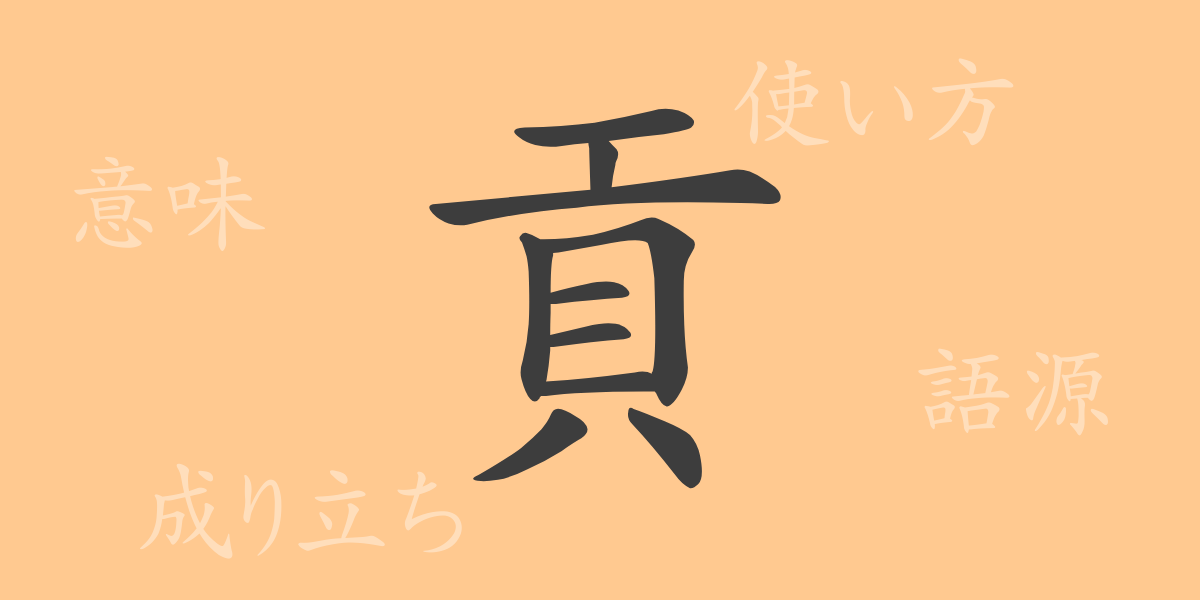The depth of Japanese written culture is such that each kanji character carries with it a history that extends from its formation to the present day. This time, we will focus on one of Japan’s commonly used kanji, “貢(こう),” exploring its origins, modern usage, and various idioms and expressions that feature this character. Although you may not encounter this kanji frequently in daily life, it is deeply rooted in our language and culture.
Origin of 貢(こう)
The kanji “貢(こう)” was used in ancient China to denote taxes or tribute. This character is composed of “貝(かい)” (meaning shell money, a type of currency) and “負(ふ)” (meaning to carry or bear). Literally, it means “to bear shell money.” Since shells were used as currency in ancient China, “貢(こう)” came to represent the act of carrying wealth or tribute, eventually extending to mean tribute or tax.
Meaning and Usage of 貢(こう)
In modern Japanese, “貢(こう)” is primarily used in its verb form “貢ぐ(みつぐ),” meaning “to offer money or goods to someone of higher status or to a romantic interest.” It can also refer to gifts or tributes. However, this kanji is not commonly used in everyday conversation and is more often seen in specific contexts or set phrases.
Readings, Stroke Count, and Radical of 貢(こう)
Understanding the shape and meaning of the kanji “貢(こう)” can provide deeper insights into the Japanese language and its characters.
- Readings: On-yomi (Chinese reading) is “コウ(こう),” and kun-yomi (Japanese reading) is “みつぐ.”
- Stroke count: 11 strokes in total.
- Radical: 貝(かいへん) (shell).
Idioms, Phrases, and Proverbs Using 貢(こう)
Idioms and phrases that include “貢(こう)” showcase the richness of Japanese expressions through their meanings and uses. For example, “貢献(こうけん)” means “to contribute to society or others,” a word commonly used in business and daily life. “貢物(こうぶつ)” refers to “offerings made to gods or people,” seen in historical contexts or literary works.
Conclusion on 貢(こう)
The kanji “貢(こう)” carries historical and cultural significance, though it is not frequently used in everyday language. It plays a crucial role in expressions like “貢献(こうけん),” which holds social value, and appears in specific idioms and phrases. By delving into the origins and uses of such seemingly understated kanji, we can appreciate the depth of the language and the cultural backgrounds they reflect.

























